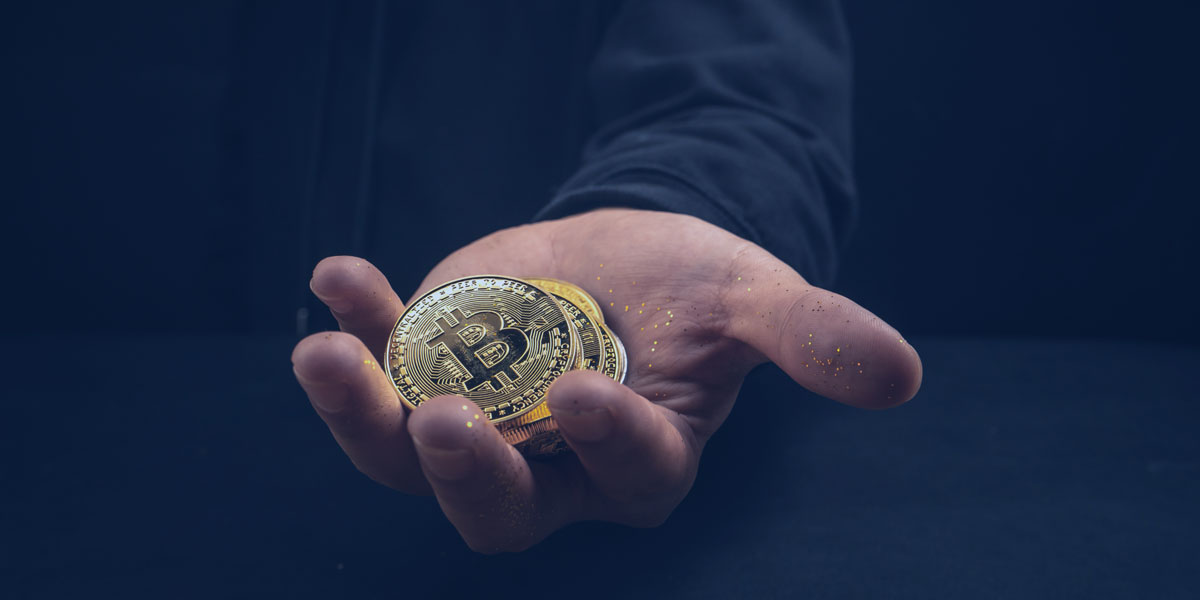If you’re here, you’re likely intrigued by the world of digital assets, blockchain, and the promise of a decentralized future. But let’s pause for a moment. While the crypto industry offers a wealth of opportunities, it’s also rife with risks, particularly when it comes to common crypto scams.
The anonymity and irreversible nature of crypto transactions make them a hotbed for all sorts of fraudulent schemes. From phishing scams to the more elaborate giveaway scams, the tactics are numerous and, sadly, effective. According to a sobering “Web3 Security Report” by CertiK, 2022 set a grim record for the crypto community. Losses attributed to hacks, exploits, and, yes, crypto scams soared to an unprecedented $3.7 billion. That’s a staggering 189% jump from the previous record of $1.3 billion set in 2021. And these figures only account for those who’ve actually reported their losses.
So, why should you, an individual curious about crypto, be concerned?
Falling into the trap of a crypto scam doesn’t just mean losing your digital assets; it can also erode your confidence in this groundbreaking technology. And let’s be honest, rebuilding that trust is a lot more challenging than learning how to spot a scam in the first place.
In this guide, we’ll explore the most common crypto scams of 2024, how they operate, and what you can do to protect yourself. Knowledge is power, and we’re here to arm you with the information you need to navigate the crypto space safely.
How Do Common Crypto Scams Work?

So, you’re probably wondering, “How do these common crypto scams actually operate?” Well, let’s unravel the mystery together. Scammers in the crypto space are crafty, and they’ve got a whole bag of tricks to separate you from your digital assets.
First off, let’s talk about the lack of oversight. Unlike traditional financial transactions, most crypto assets aren’t regulated or monitored by any government agencies. This lack of regulation is like an open invitation for crypto scammers to operate without much fear of getting caught.
Now, onto the tactics. There are a few main ways these scams go down:
- Gaining Access to Your Wallet: This is the digital equivalent of pickpocketing. Scammers aim to gain access to your crypto wallet by tricking you into revealing your private keys or other authentication details. Sometimes, they gain access when you click on strange links and might even go after your physical hardware.
- Direct Transfers: In these cases, the scammer will impersonate someone you trust or present a too-good-to-be-true business opportunity. The end game? To transfer crypto directly from your wallet to theirs.
- Scam Projects: Ever heard of projects that promise the moon but deliver nothing? These are scam projects designed to lure you in, only to disappear with your hard-earned crypto.
- Fake Giveaways: Sometimes, scammers will use social media platforms to announce fake giveaways, asking you to send a small amount of crypto to qualify for a larger amount. Spoiler alert: The larger amount never comes.
At the end of the day, the responsibility to protect your digital assets falls squarely on your shoulders. That’s why being vigilant and educated about the common crypto scams is crucial.
Most Common Crypto Scams in 2024
Alright, let’s get into the nitty-gritty. The crypto space is like the Wild West, full of opportunities but also rife with pitfalls. And just like in any frontier, there are outlaws – scammers who are more than happy to part you from your hard-earned digital assets. So, let’s arm you with the knowledge you need to spot these scams before they spot you. Ready? Let’s dive in.
Investment scams

Let’s say you’re scrolling through your social media feed, and you come across someone claiming to be an “investment guru,” promising to turn your modest crypto stash into a mountain of digital gold. Tempting, right? But hold on, let’s decode this.
These so-called “investment managers” or even “celebrity endorsers” are often nothing more than scammers in disguise. They’ll lure you with promises of astronomical gains, asking you to transfer some of your crypto to them for “investment.” The moment you do, consider that crypto gone, vanished into the digital ether.
Subtypes of Investment Scams:
- Pump-and-Dump: Ever seen a random crypto asset suddenly skyrocketing in value? Be cautious. Scammers inflate the price, you buy in, and then they sell, causing the value to plummet. You’re left holding worthless tokens.
- The Social Media Hype Train: Platforms like Reddit and X are breeding grounds for this type of scam. Someone hypes up a new or obscure crypto asset, and before you know it, everyone’s jumping on the bandwagon. The result? A lot of people end up losing a lot of crypto.
Red Flags:
- Promises of guaranteed or excessive profits.
- Unsolicited messages or outreach about your crypto assets.
So, the next time someone promises you the moon and stars in the crypto universe, take a step back and think. Always remember, if it sounds too good to be true, it probably is.
Rug Pulls

Imagine you’ve just discovered a new DeFi project that seems like the next big thing. It’s got all the buzzwords: “yield farming,” “liquidity pools,” and “staking rewards.” You’re excited and ready to dive in. But wait, what if this project is setting the stage for a rug pull? Let’s break it down.
In the crypto world, a rug pull is akin to a magician’s disappearing act but with a sinister twist. Developers or key players in a DeFi project might suddenly drain all the liquidity or funds, leaving you with tokens that are as valuable as Monopoly money. This often happens in projects built on blockchains like Ethereum, where smart contracts are the backbone.
How Does It Work?
- The Setup: Scammers create a project that looks legit on the surface. They might even use complex jargon and promising roadmaps to lure you in.
- The Bait: Once they’ve got your attention, they’ll encourage you to invest your crypto, often promising high returns or unique features.
- The Vanish: After accumulating enough liquidity, they exploit hidden vulnerabilities in the smart contract to drain all the funds. And just like that, they’re gone.
Red Flags to Watch For:
- Anonymity Overload: If the project’s team is shrouded in mystery, with pseudonyms or limited background info, be cautious.
- Too Good to Be True: Exaggerated claims about the project’s potential or partnerships can be a sign that something’s off.
- Unbalanced Tokenomics: If the token distribution heavily favors the developers or early investors, it might be a setup for a rug pull.
So, the next time you’re tempted by a shiny new DeFi project, do your due diligence. Check for transparency, scrutinize the smart contract, and always, always question the too-good-to-be-true promises. Because in the world of crypto, caution is your best investment.
Phishing Scams

A phishing scam is one of the oldest tricks in the digital scammer’s book. But don’t let its age fool you; this tactic has evolved to keep up with the crypto craze. So, what’s the deal with phishing in the crypto world?
Phishing in the crypto realm is like its traditional counterpart but with a digital currency twist. The scammer’s goal is to snatch your wallet’s private keys, which are essentially the keys to your crypto kingdom. Once they have those, they can easily swipe your digital assets.
How Does It Work?
- The Hook: Scammers send you an email or message that looks like it’s from a trusted source – think your bank, a popular crypto exchange, or even a government agency. It can even be URLs similar to trusted sites you use on a normal day.
- The Line: These emails often contain urgent messages like “Unauthorized withdrawal initiated. Click here to cancel.” Tempting, right?
- The Sinker: Once you click the link, you’re directed to a fake website that mimics the real one. Here, you’re asked to enter your private keys or connect your wallet. And boom, you’re caught.
Red Flags and Safety Tips:
- Check the URL: Always double-check the website’s URL to make sure it’s a legitimate site. Scammers often use URLs that are slight misspellings of the real thing.
- Be Skeptical: If you receive an unsolicited email or message asking for urgent action or personal information, be extra cautious.
- Verify, Then Trust: Before clicking any links, verify their legitimacy by contacting the supposed sender through a different, trusted method.
Remember, phishing scams are like wolves in sheep’s clothing. They may look harmless or even helpful, but their intentions are anything but. So, always be on your guard and think twice before clicking that “urgent” link. After all, in the crypto world, your vigilance is your best defense.
Fake Celebrity & Giveaway Scams

Who wouldn’t want to invest in a project endorsed by Elon Musk or Bill Gates? But hold on a minute – what if that celebrity endorsement is as fake as a $3 bill? And what about those tempting crypto giveaways that promise to double your investment?
The Celebrity Trap
- The Impersonation Game: Scammers use deepfake technology or simply slap a celebrity’s name and photo onto their schemes. They might even go so far as to create a video where a “celebrity” passionately endorses a crypto project.
- The Promise: These fake endorsements often come with irresistible offers – like a 30% return on your investment in just three months. Sounds too good to be true? That’s because it is.
The Giveaway Gimmick
- The Hype: Scammers use social media platforms like X, YouTube, and Facebook to promote “exclusive” cryptocurrency giveaways. They’ll claim to match or even triple any crypto you send them.
- The Urgency: These scams often come with a ticking clock, pressuring you to act fast or miss out on a “once-in-a-lifetime” opportunity.
How to Protect Yourself
- Do Your Homework: Before you jump on any investment or giveaway, research the project thoroughly. Check out the team behind it and look for verified endorsements.
- Trust but Verify: If a celebrity appears to endorse a project, look for confirmation on their official social media accounts or trusted news sources.
- Question the Urgency: Scammers love to pressure their targets. If you’re being rushed, take a step back and ask yourself why.
- Check for Previous Scams: A quick Google search can often reveal whether a similar common crypto scam has been run before. For instance, did you know that in 2021, Elon Musk impersonators scammed people out of over $2 million?
Remember, in the world of crypto, if something seems too good to be true, it probably is. Always keep your wits about you, and don’t let the allure of quick riches or celebrity endorsements cloud your judgment.
Job Scam

The allure of a new job – especially one that promises a foray into the exciting world of cryptocurrencies. But hold on a minute! Not every “golden opportunity” is as shiny as it seems. Let’s talk about job scams in the crypto space, a growing concern that’s tricking even the most unsuspecting investors and job seekers.
The Crypto Job Scam Playbook
Say you’re scrolling through a job site and stumble upon a listing that seems too good to be true. A remote position with a crypto project, promising high wages and even some insider access to the next big thing in decentralized finance. You’re intrigued, but here’s where the red flags start to wave.
Firstly, these scammers often list fake jobs related to crypto projects. They might offer roles that involve recruiting investors, mining cryptocurrencies, or converting cash to crypto. But then comes the catch – they ask for an upfront payment in cryptocurrency to kickstart your “job training.”
The Bait and Switch
Once you’ve made the payment, they’ll send you a fake check to deposit into your bank account. Then, they’ll instruct you to withdraw some of that money and buy crypto for a “client.” By the time you realize what’s happening, your bank account is drained, and you’re left holding the bag. Financial fraud like this can be devastating, and you’re liable to repay your bank.
The North Korean Angle
In a more complex twist, some scams even involve international actors. The U.S. Treasury Department has issued warnings about North Korean IT freelancers posing as U.S.-based professionals. These individuals seek out crypto-related assignments and use their skills to gain insider access to currency exchangers and other virtual currency platforms. Once in, they hack into networks to either steal data or raise revenue for North Korea.
How to Protect Yourself
- Flag Suspicious Crypto Transactions: Always be cautious when asked to make any crypto payments for job opportunities.
- Verify, Verify, Verify: Conduct thorough research to avoid falling victim to such scams. Check the legitimacy of the company and the people behind it.
Job scams in the crypto world are becoming increasingly sophisticated, targeting both your crypto investments and bank accounts. Always exercise caution and do your due diligence to protect yourself from becoming another victim.
How to Avoid Common Crypto Scams
Now, let’s talk about how to dodge those pesky traps and keep your digital assets safe and sound.
Don’t Take the Bait
First things first, if someone from your crypto brokerage or any financial institution contacts you out of the blue, don’t bite. Instead, look up the official number and initiate contact yourself. This way, you can flag suspicious crypto transactions before they even happen.
Think Before You Click
We’ve all been there – curiosity almost got the better of us. But when it comes to crypto, clicking on hyperlinks or opening attachments from unfamiliar senders is a big no-no. Always double-check before you click to avoid phishing scams.
Keep ‘Em Separated
It’s tempting to link your crypto accounts to your traditional bank account for convenience, but it’s safer to keep them separate. This way, if one account is compromised, the other remains untouched.
Freeze! Don’t Move
Receive a notice about unusual activity on your account? Don’t dilly-dally. Place a hold on any future transactions immediately. Report crypto scams to the Federal Trade Commission or the Internet Crime Complaint Center right away.
Choose Storage Wisely
When it comes to storing your crypto, the type of wallet you use matters. Opt for popular wallets like Trust Wallet or MetaMask for non-custodial wallet solutions, reputable companies like CoinPayments Wallet for custodial solution or Ledger and Trezor for cold wallets. Your crypto security is only as good as the tools you use.
The “S” in HTTPS Matters
Ever noticed that extra “S” in some URLs? That’s your cue that the site has secure and encrypted traffic. Always look for HTTPS in a crypto exchange or wallet URL to ensure your information is safe.
By following these tips, you can navigate the crypto world like a pro, avoiding financial fraud and keeping your investments secure. So go ahead, make those crypto transfers with confidence!
Frequently Asked Questions (FAQ)
What are Common Cryptocurrency Scams?
The usual suspects include rug pulls, romance scams, phishing attacks, and dodgy investment schemes. Each has its own tactics, so it’s crucial to recognize the red flags.
Can You Get Scammed if Someone Sends You Crypto?
Technically, receiving crypto isn’t the issue. The problem arises if you unknowingly participate in a scam, share your keys, or fall victim to a hack. Always be cautious about unexpected transactions.
How do You Avoid Getting Scammed with Crypto?
Knowledge is power. Familiarize yourself with common scam techniques and keep your keys ultra-secure, preferably in cold storage. Being vigilant and informed is your best defense.
Why do Scams Want Bitcoin?
Bitcoin transactions are hard to trace, making it a favorite for scammers seeking anonymity.
Why is Crypto High Risk?
Regulations are evolving and vary by location, adding to crypto’s volatility and uncertainty.






